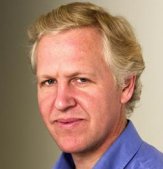So Turkey narrowly failed in their efforts to upset France and win the right to host the 2016 European football championship.
Having come so close in Friday’s vote, I’m sure members of the Turkish bid team will need time to get over their disappointment.
But once they do, they can reflect that their efforts have secured an important legacy for Turkey: never again will a Turkish bid for any sports competition be taken lightly.
Since another Istanbul Summer Olympic bid is expected for the Games of 2020 and a Turkish bid for the 2026 World Cup is also possible, this is an achievement of some significance.
Friday’s events in the lakeside city of Geneva - which saw France see off the Turkish challenge by just seven votes to six following Italy’s first-round elimination - have also set me musing about something else: the firmness of UEFA President Michel Platini’s hold on power.
Now I assume Platini, as a Frenchman and former captain of the French national football team, wanted France to win.
This in spite of his commendably even-handed comments after the result emerged, when he described the position of the President of UEFA “being French” as “complex”, adding: “It was not an easy situation for me - I am French, my name is Italian and I have many friends in Turkey.”
I think it is certainly reasonable to surmise that others might have assumed that he wanted France to win.
Thus any UEFA Executive Committee member wishing to curry favour with the President of European football’s ruling body had an incentive, on the face of it, to consider casting his vote for France.
And yet this bid which, even disregarding the nationality of the UEFA President, was tabled by one of the most powerful nations in Europe, a country plainly capable of staging a good Euro, squeaked home by an extremely narrow margin - almost the narrowest possible.
When you consider that France’s chief rival is a nation culturally and geographically on the very edge of Europe which, though its bid was both well-thought-through and imaginative, would have been an untried quantity for a tournament of this nature, then I think it is remarkable that the race was this close.
Of course, it is possible that the tightness of the contest reflects solely the impressive nature of the Turkish bid and the impeccable impartiality of the UEFA decision-makers.
As Platini also said: “UEFA has proved once again that we have democracy.”
But I’m afraid I’m cynical enough just to begin to wonder whether France’s failure to win more impressively might not presage problems ahead for the UEFA President.
David Owen is a specialist sports journalist who worked for 20 years for the Financial Times in the United States, Canada, France and the UK. He ended his FT career as sports editor after the 2006 World Cup and is now freelancing, including covering last year’s Beijing Olympics. An archive of Owen’s material may be found by Twitter users at www.twitter.com/dodo938

